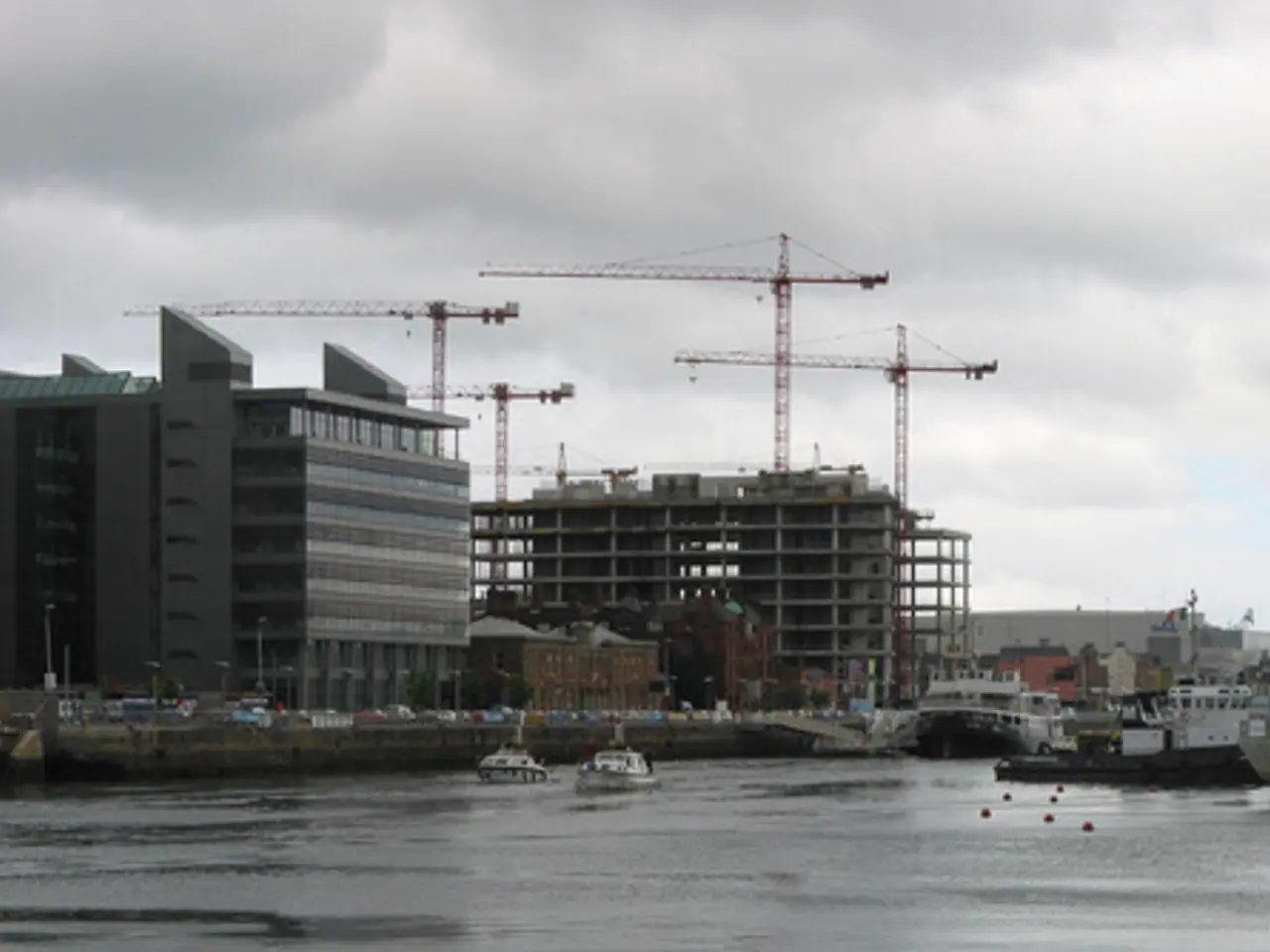Focusing on the urgency of construction steps at the NOK site
The North Sea-Baltic Canal, a vital European waterway, is currently undergoing renovation and expansion. This project, however, faces several challenges that need to be addressed for its successful completion.
The Challenges
The renovation and expansion of the canal present formidable obstacles, including increased costs, aging infrastructure, a growing number of projects, and cost overruns. Aside from financial challenges, the project involves substantial engineering complexities, such as dredging, widening, and strengthening locks, while maintaining current traffic flow.
Environmental and regulatory hurdles also loom large. The renovation must comply with stringent environmental standards, protect ecosystems, and manage water resources carefully to avoid negative impacts on the surrounding environment. Cross-border cooperation is another significant challenge, as the canal links different jurisdictions, and managing competing interests among stakeholders is essential.
The Benefits
Despite these challenges, the benefits of the North Sea-Baltic Canal renovation and expansion are substantial. The primary goal is to enlarge the canal to accommodate bigger vessels and increase freight throughput, boosting its role as a key European waterway for cargo transport.
Improvements to the canal will stimulate economic growth by connecting the North Sea and Baltic Sea more effectively, lowering transport times and costs, which supports regional and international commerce. Moreover, by improving inland waterway transport capacity, the canal can help reduce reliance on road and rail freight, thus lowering carbon emissions and congestion.
According to a 2021 study by the Kiel Institute for the World Economy, the North Sea-Baltic Canal generates an annual economic benefit of 570 million euros for Germany. Sufficient specialized personnel in the fields of engineering and technical work are crucial for regular maintenance and upkeep at the North Sea-Baltic Canal.
The Importance of Timely Completion
Delaying the expansion of the North Sea-Baltic Canal would not benefit shipping, the environment, or the economic benefits and taxpayers. The canal has high climate-political relevance due to the reduction of CO2 emissions, making it a strategic infrastructure project with geopolitical implications.
The strategic importance of such corridors also reflects in geopolitical discussions about alternative maritime routes and infrastructure development. With the challenges and benefits clearly laid out, the focus now shifts towards finding solutions to overcome obstacles and ensure the timely completion of the North Sea-Baltic Canal renovation and expansion project.
- To maintain current traffic flow during the renovation, it's crucial to implement complex engineering solutions like dredging, widening, and strengthening locks in the North Sea-Baltic Canal.
- Ensuring the project complies with environmental standards while protecting ecosystems and managing water resources efficiently is necessary to avoid negative impacts on the surrounding environment.
- The expansion of the North Sea-Baltic Canal will boost its role as a key European waterway for cargo transport, lowering transport times and costs, and supporting regional and international commerce.
- The strategic completion of the North Sea-Baltic Canal renovation and expansion project is essential for shipping, the environment, and economic benefits, as it has high climate-political relevance and geopolitical implications.




